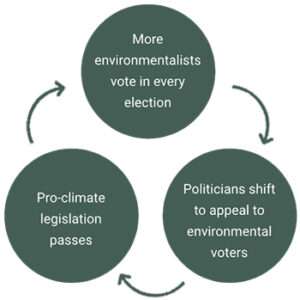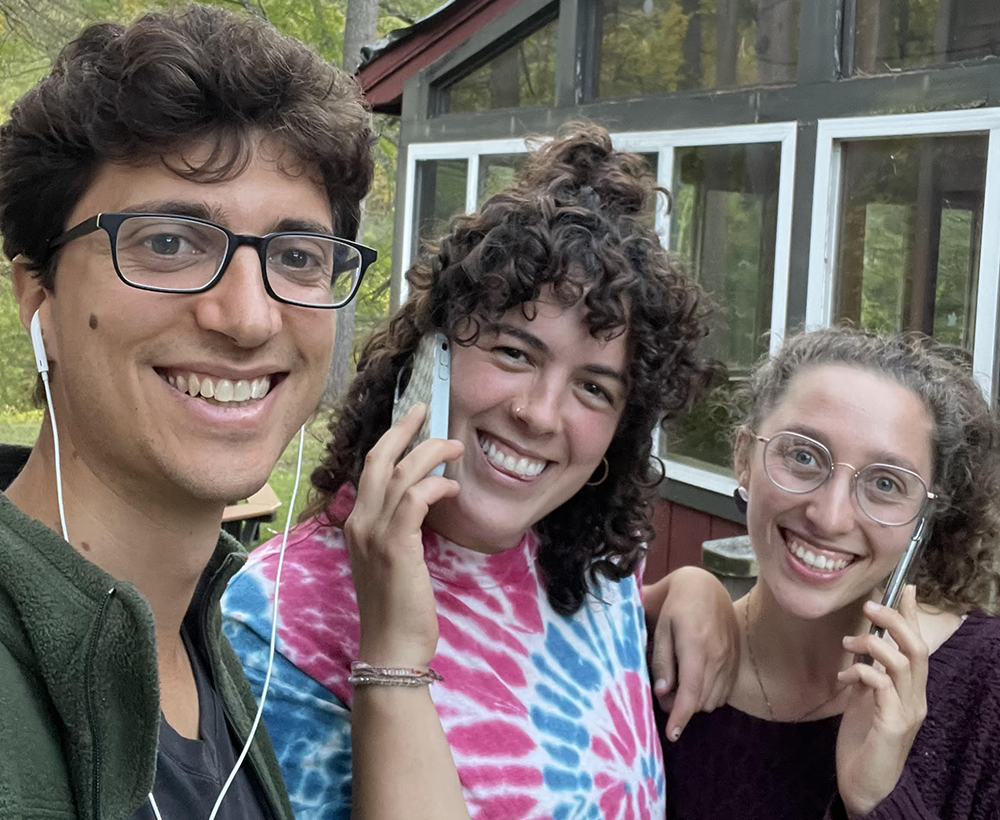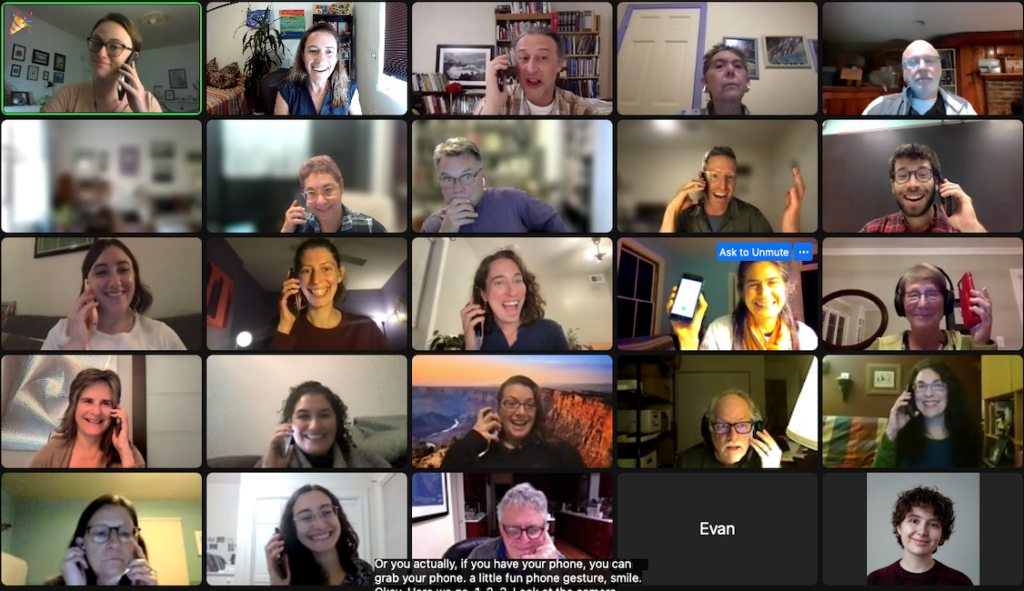This fall, hundreds of Jewish climate activists will spend some time making calls with Chutzpah 2024. We’ll be reaching out to climate-concerned voters to make sure they get to the polls and vote their values in the election. The goal is to contact half a million people in key states.
Simple, yes — but part of a much larger strategy for the climate movement in the U.S.
Bottom line: it’s about building power. Aggregating the power of the diverse climate movement into a dedicated and large climate voter bloc; and building a vibrant and powerful Jewish climate movement for the long run.
Building a climate voter bloc
Dayenu works closely with the Environmental Voter Project (EVP), which has both a sophisticated strategy AND some serious technology chops.
EVP recognizes that policymakers and politicians are not doing enough to enact climate solutions – and attributes this to the fact that they don’t feel pressure from voters who care about climate. Politicians can access public records to see who votes, down to the street address — and they keep track of who reaches out once they’re in office.
And people who care about the climate simply don’t vote in representative numbers. EVP estimates that as many as 8 million climate-concerned voters skipped the 2020 election.
This leaves the door open for undue influence from special interests who profit from the status quo and are committed to stopping transformative climate action. Candidates and elected officials hear and heed many more demands from fossil fuel companies, who are investing hundreds of millions of dollars in swaying elections and influencing policy.
But the millions of climate-concerned voters actually do have the power to decide elections. In 2020, 44,000 votes in three states were the margin for the final result.
Unfortunately, many voters face significant hurdles to accessing the ballot – a legacy of racial discrimination and voter suppression, made worse by the deep pockets of dirty energy companies. But some voters simply miss the chance to vote on a regular basis.
This makes our way forward clear. We don’t need to convince anyone about the importance of climate action; we need to activate voters who already care.
 EVP takes three steps:
EVP takes three steps:
- Find climate-concerned but infrequent voters. EVP uses data analytics and predictive modeling to identify them, especially in key states where the climate vote could sway elections.
- Get them to vote. EVP has tested methods, and finds that leveraging social norms is extremely effective. Contact voters, and follow up before the election.
- Build long-term voting habits. Voting can become habitual. And once someone has voted, campaigns start contacting and polling them, elevating the climate issue in the national conversation.
That’s where we come in: contacting these voters is essential – and working with EVP, we make it easy and meaningful.
(For more about EVP’s strategy, please listen to this excellent Ted Talk from the founder, Nathaniel Stinnett.)
Building a vibrant Jewish climate movement
Yes, Chutzpah phonebanking shifts are about contacting climate voters. But they’re also about us – creating community, nourishing our souls, connecting with Jewish wisdom and ritual. Volunteer shifts feature live musical performances, kavanot / teachings, guest speakers, and more.
Our phonebanks make a difference in building that climate voter bloc. And they make a difference in empowering Jewish climate activists to participate, connect, and deepen their own commitment to climate action.
Dayenu has a vision of a just, livable, and sustainable world for all people for generations to come – a fundamentally transformed society where everyone enjoys equal rights to a safe and healthy future, regardless of race, income, or zip code.
Realizing that vision takes all of us – and a whole lotta chutzpah!
Join us! When you participate in a phonebank, you help build the climate voter bloc, you learn and connect, and you become part of something that connects to your community, your ancestors – and your descendants.
And bonus? It’s fun!


